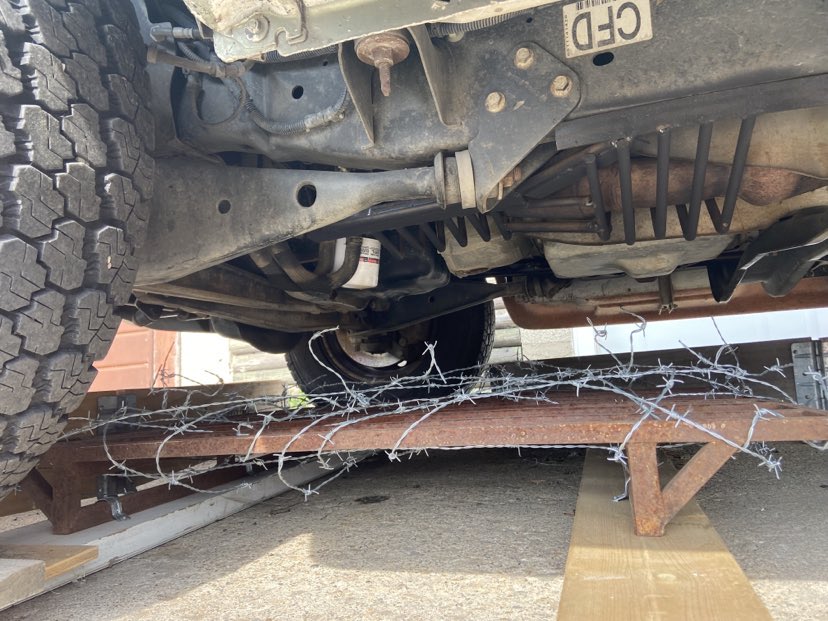It was a freezing cold December morning when John Kloosterman looked outside his window and noticed a suspicious vehicle. The passenger window was open and the driver was talking to someone.

“I couldn’t see this somebody, so I quickly got dressed, grabbed my bear spray and I ran out there. Lo and behold, there is a person under my car cutting my catalytic converter,” Kloosterman said.
He said he didn’t have much time to think and just acted.
“I stuck my bear spray under the van and let him have it. He started to choke and gag… I was screaming and swearing as loud as I could, and the guy in the car was yelling at his buddy to hurry up,” he said.
“I caught them in the act and they didn’t get away with it.
“In fact, they left all their tools and he left his coffee cup because he was having a coffee while he was doing this.”
Kloosterman phoned the police and when officers arrived, they took the tools and coffee cup. He said the next night, different thieves attempted to steal the converter again, but went to the wrong spot to find it.
Kloosterman paid $1,400 to have a cage installed around his catalytic converter and that is not all. He also wrapped a metal pallet with barbed wire and hid that under his van.
“If they do make it underneath, it’s not going to be very comfortable for them. And if they do get that far, I got a catalytic converter cage,” he said.

Get daily National news
“Is it completely foolproof? Probably not. But it would take them a lot of extra time.”
Kloosterman said after he had time to think about the confrontation he had with the thieves, he said it was a scary situation.
“It was very scary after I thought about it because they could have had guns or weapons, but I didn’t get hurt.”

Edmonton police said between January and the end of April, there have been 1,156 thefts, with January seeing a record number of converters stolen at 392. In 2022, there were 3,514.
EPS said while a thief might receive $200 for a catalytic converter from a scrap metal dealer, the replacement and repairs could cost at least $2,000, or more than $10,000 for larger commercial vehicles.
Edmonton city council is getting involved. Councillors have approved a plan to lobby other orders of government to strengthen laws. For example, it wants the feds to require catalytic converters on new vehicles to be etched with a VIN.

Edmonton police have also taken steps. Later this month, police will be making an announcement in partnership with AMA and Kal Tire about a VIN-etching program that will be available at a low cost in Edmonton.

Police also held a contest looking for ideas to prevent thefts.
Tamara Dolinsky and her mom Mavis Shaw came up with the idea of the FoilemFence after Dolinsky’s converter was stolen.
“Mine was stolen. I didn’t want it to be stolen again. Mom designed this and we got it built and then a month or two months later, the challenge came out,” she said.
“It has three pieces: there’s a middle piece and the end pieces have pads you drive onto, they slot together and you put them in front of your tires and then the weight of your vehicle locks them in place.”
The FoilemFence has received its patent, and now it’s undergoing trials before Edmontonians will see it on store shelves.
“Some of the people we placed them with are in particularly high-risk areas, and every day they go to work they were worried they wouldn’t have a catalytic converter. Now the peace of mind is amazing. They can go down and they know it’s not going be a problem,” Dolinsky said.
“Something needs to stop it and the more options we have, the better.”



Comments